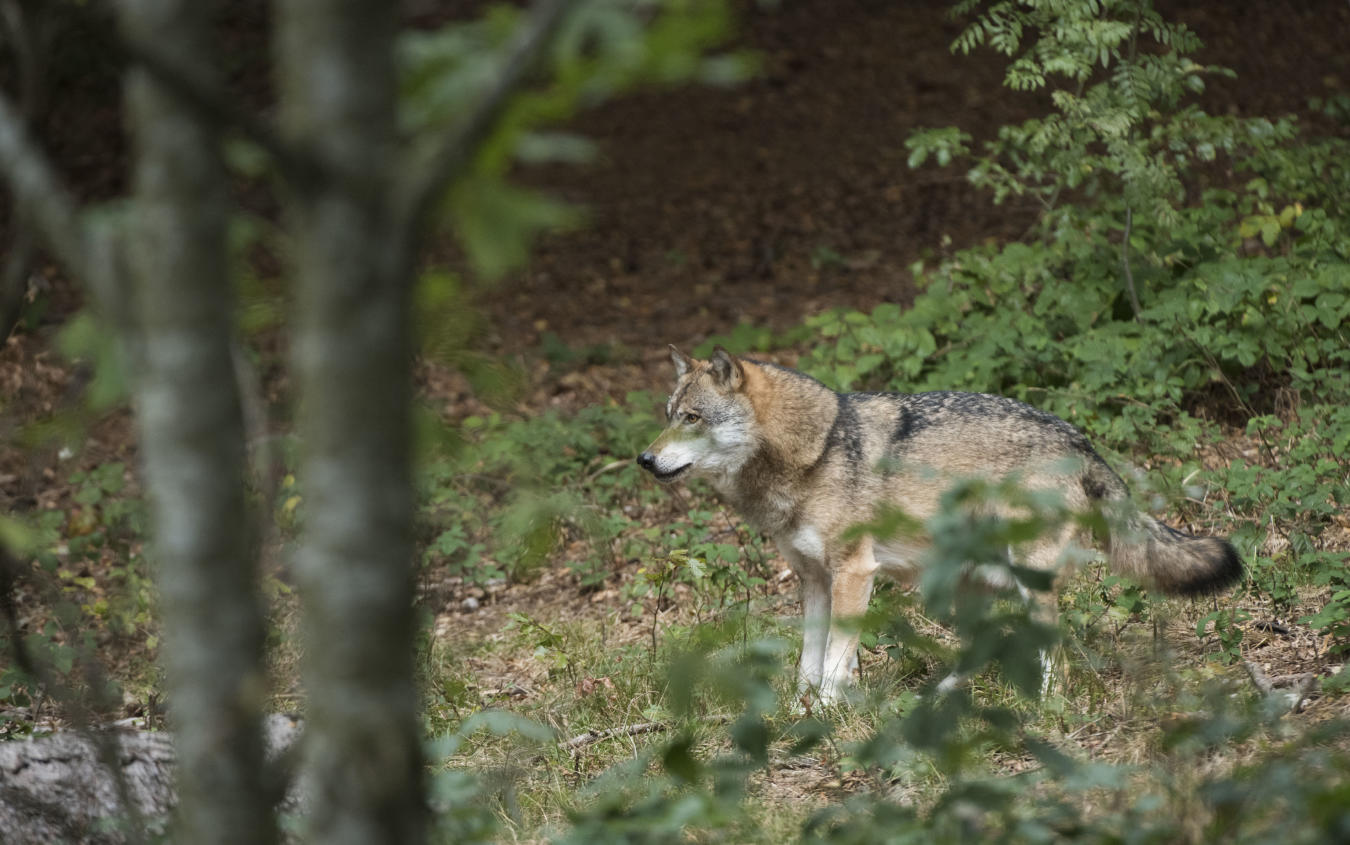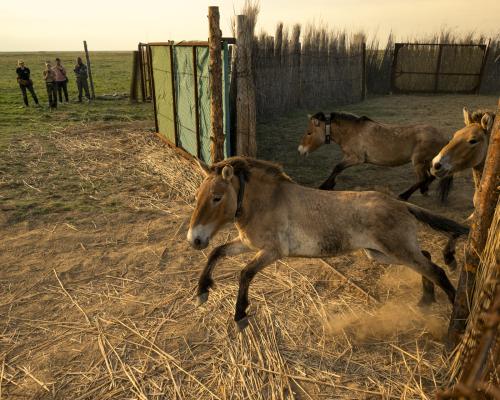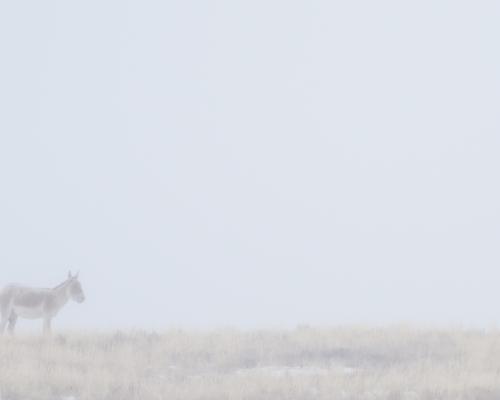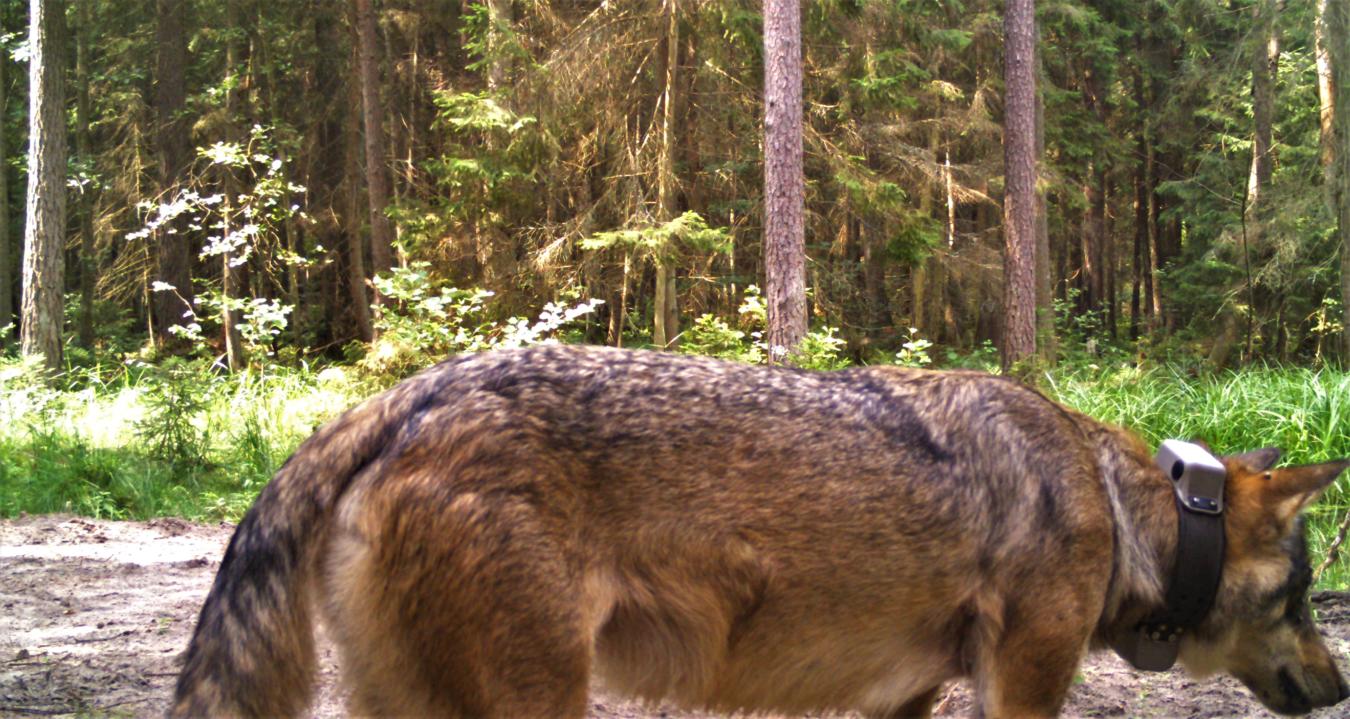New Study from the Frankfurt Zoological Society shows the importance of protected areas for wolves. When given the choice, these adaptable predators avoid roads, settlements, and areas of higher human disturbance.

Quiet Islands in a World of Fear
Using tracking data from wolves in Belarus, scientists from the Frankfurt Zoological Society and the University of Freiburg examined where wolves selected to be, and at which times, to best avoid human disturbance. In their study area, the Belovezhskaya Pushcha National Park between Belarus and Poland, they found, that the national park was an important refuge for wolves to escape disturbance from public roads and villages.
Protected areas often have different zones with more or less protection and management. “Our study showed, that wolves chose to use the core zone, which are most protected, more than the other zones. They also preferred the National Park over areas outside the park with less environmental protection”, says lead author and PhD student Adam F. Smith.
The researchers also saw that wolves avoided public roads during all seasons. “We found that wolves avoided public roads during the middle of the day compared to night time. Similarly, they avoid settlements and villages more strongly during day time, when risk from humans is higher”, explains Smith.
The results of the study, now published in the scientific journal “Biological Conservation” reveal how wolves adjust their behaviors temporally to reduce their risk of encountering human disturbance, helping to explain their continued perseverance in Europe’s shared landscapes.
Although wolves can and often do use the whole landscape, their “first preference” is avoidance of human disturbance if given the opportunity. This means, that areas of lower human disturbance may be vital for minimizing negative interactions between wolves and people in our European landscapes.
Adam F. Smith, Simone Ciuti, Dmitry Shamovich, Viktar Fenchuk, Barbara Zimmermann, Marco Heurich (2022)
Quiet islands in a world of fear: Wolves seek core zones of protected areas to escape human disturbance
Biological Conservation, Volume 276, 2022, 109811
https://doi.org/10.1016/j.biocon.2022.109811
https://www.sciencedirect.com/science/article/pii/S0006320722003640
Press Photos
https://photos.fzs.org/Press-Photos/EUROPE/Belarus/Wolf-StudyDecember-2022












